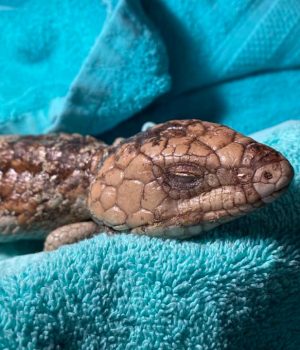Reptile removalists across Perth’s south-east are urging people to be on the lookout for sick bobtails.
The Shingleback Nidovirus (Bobtail flu) is prevalent in Western Australia and is highly contagious to other bobtails.
A healthy bobtail should be defensive when approached and show off the blue tongue they are famous for.
Symptoms of the flu are lethargy, crusty or closed eyes, runny nose and sneezing, pale gums, mucus inside the mouth, and a skinny or flat tail.
Sick bobtails can experience one or all the symptoms.
The tail should not be flat because during winter, bobtails store their food in them while they are hibernating.

Treatment for this virus is electrolytes, antibiotics and pain relief, a warm enclosure and nebulising.
If this flu is not treated, the bobtail will end up dying but they can be saved with specialist care.
Anyone who comes across a sick bobtail should contact a local wildlife shelter such as Darling Range Wildlife Shelter or a vet as soon as possible.
Darling Range Wildlife Shelter can be contacted on 9394 0885.














